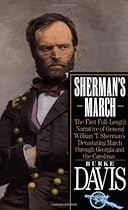Slavery in America Planted by British
A paradox in popular thought today is that though the British flag is fully representative of the African slavery brought to, nurtured and perpetuated on the shores of North America, the flags of the American Confederacy are held to be the preeminent symbols of African slavery, and solely blamed for its existence. It is ironic that in a nearby predominantly black neighborhood, the British flag flies on a front porch column with no complaint from the black residents.
Bernhard Thuersam, Chairman
North Carolina War Between the States Sesquicentennial Commission
www.ncwbts150.com
"The Official Website of the North Carolina WBTS Sesquicentennial"
========
Slavery in America Planted by British:
“The abolitionists of the [post-Revolutionary] era were, for the most part, Federalists. Southern Federalists…openly opposed the institution. In 1789 an anti-slavery society was founded in Maryland. Further south, in North Carolina, the astute and scholarly Federalist politician, Hugh Williamson, worked against any extension of slave power.
If the institution of Negro slavery gained first a foothold, then an entrenched position, the greed of the British crown was largely responsible. As early as 1726, the planters of Virginia became alarmed at the growth of the Negro population and imposed a tax on imports of slaves. The Royal African Company interfered and had the law repealed. South Carolina restricted slave imports in 1760 only to be rebuked by London.
In 1712, the Pennsylvania legislature moved to curb the increase in Negroes, but the law was annulled by the Crown. Massachusetts in 1771 and again in 1774 passed laws designed to abolish the slave trade, but the [British] colonial governors refused to approve them. Queen Anne, who personally held a quarter of the stock of the Royal African Company, the chartered organization that monopolized the slave trade, ordered it to provide New York and New Jersey with Negroes and directed the governors of these colonies to give it full support.
Jefferson charged the British crown with forcing Negro slavery on the colonies; Madison asserted that England had checkmated every attempt by Virginia “to put a stop to this infernal traffic”; Bancroft taxed Britain with “steadily rejecting every colonial restriction on the slave trade (and) instruct(ing) the governors, on pain of removal, not to give even a temporary assent to such laws.” In the words of the rabidly anti-Southern historian and politician Henry Wilson: “British avarice planted slavery in America; British legislation sanctioned and maintained it; British statesmen sustained and guarded it.”
(The Negro in American Civilization, Nathaniel Weyl, Public Affairs Press, 1960, pp. 24-25)
From Free North Carolina













0 Comments:
Post a Comment
Subscribe to Post Comments [Atom]
<< Home